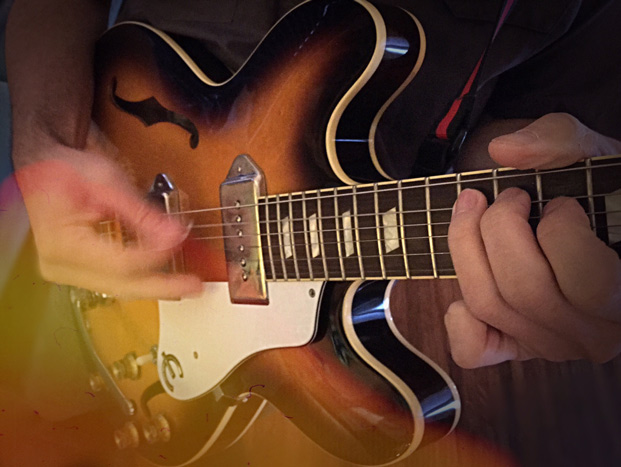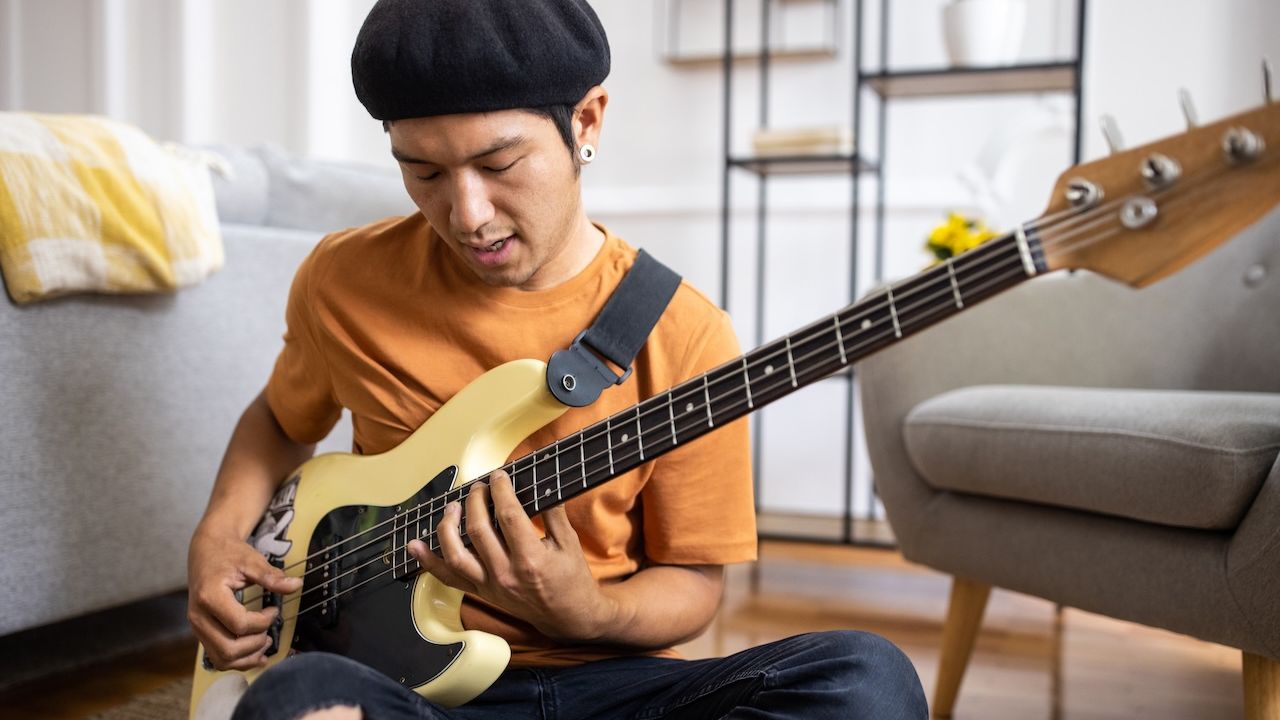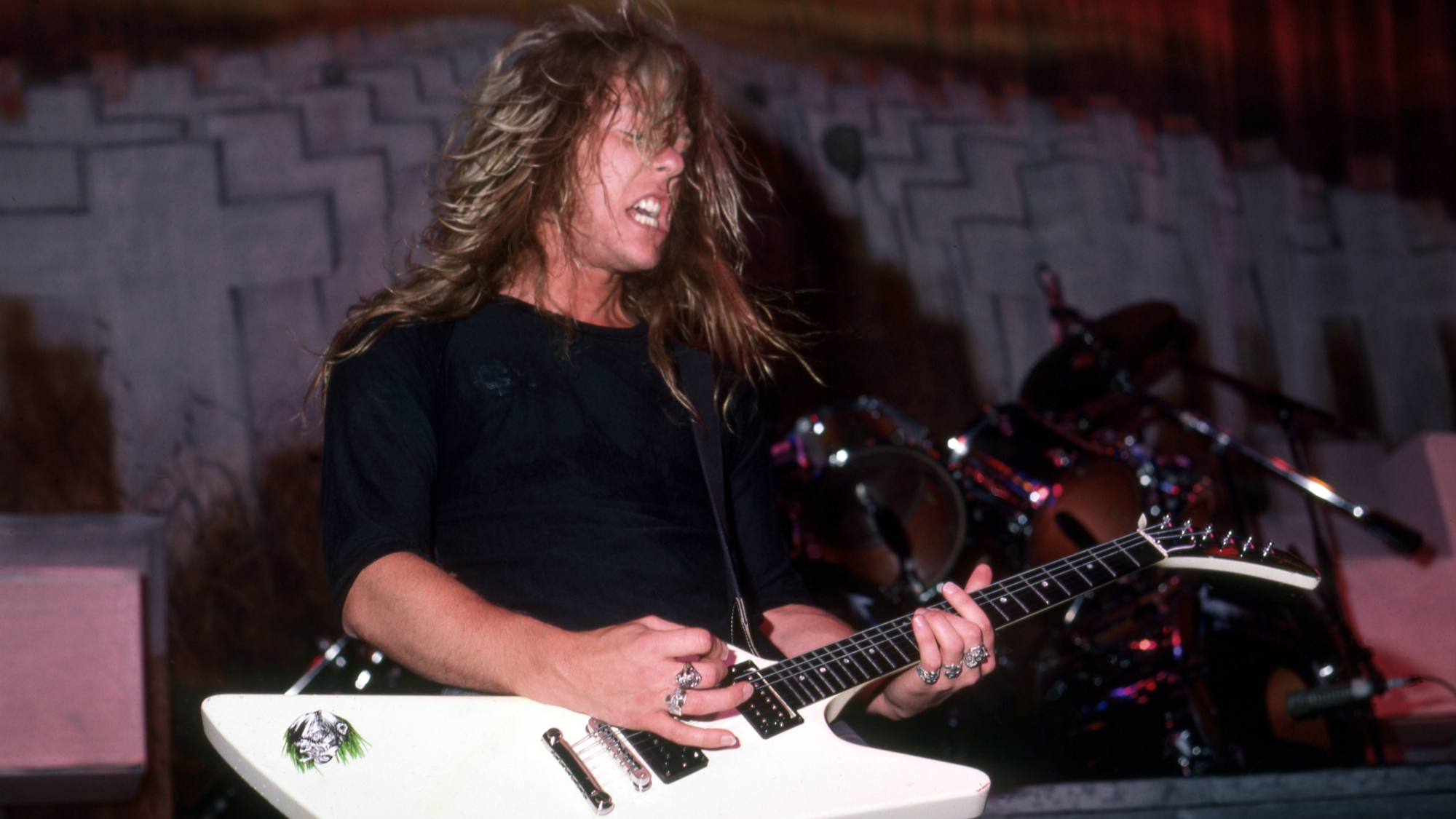Using Out-of-the-Box Scale Fingerings to Master the Fretboard

Two of the most common questions I hear from students are, “How do I break out of box patterns?” and “How can I learn the notes on the neck without just memorizing each fret?”
Over the years, and after working with hundreds of students on these topics, I’ve come up with a few exercises that have proved to be very beneficial to players who find themselves asking these questions.
In today’s lesson, we’ll be looking at one of my favorite exercises to help you break out of playing scales in box patterns, help you learn the fretboard and expand your soloing chops—all at the same time.
Out-of-the-Box Scale Fingerings
Here is a point-form layout of the exercise that is demonstrated in the video below. Be sure to start slowly with this exercise, working without any tempo to begin with, then slowly bring in a metronome once you are comfortable getting your fingers around the rubato version of these patterns.
• Pick a key and scale type to work on. I suggest starting with the C major scale if this exercise is new to you.
• Pick a random tonic note to start on, the C on the third string, fifth fret, for example.
• Play through the scale in note order, C D E F G A B C, but never play two notes in a row on the same string or adjacent string.
• When this is comfortable, put on a backing track or chord vamp and improvise on this scale using the same random-string approach to your fingerings.
How to Practice Out-of-the-Box Scale Fingerings
Once you have worked out this exercise in the key of C major, you can expand your practicing into other keys, other scales, other melodic devices and even to jazz repertoire. Here are a few of the ways I like to expand on the technical and improvisational versions of this exercise in the practice room.
• Play these exercises in all 12 keys of the major scale, moving around the cycle of 5ths to cover all 12 keys.
• Play these exercises in one key, then all 12, through the melodic minor, harmonic minor, harmonic major and other related scales and modes.
• Apply these exercises to any arpeggio you are working on. So instead of playing all the notes of the C major scale around the neck, play the notes of the Cmaj7, Cm7 or Cdim7 arpeggio. Then branch off to other arpeggios in all 12 keys.
• Improvise over a tune you are working on, and don’t play two notes in a row on the the same or adjacent strings.
Learning the notes on the fretboard, as well as breaking out of box patterns, are two areas many guitarists struggle with. Using the above exercises in your practice routine will add a fun and challenging way to open up your fretboard and increase your improvisational abilities at the same time. What do you think of this exercise? Share your thoughts in the comments section below.
Matt Warnock is the owner of mattwarnockguitar.com, a free website that provides hundreds of lessons and resources designed to help guitarists of all experience levels meet their practice and performance goals. Matt lives in the UK, where he is a senior lecturer at the Leeds College of Music and an examiner for the London College of Music (Registry of Guitar Tutors).
Get The Pick Newsletter
All the latest guitar news, interviews, lessons, reviews, deals and more, direct to your inbox!
Matt Warnock is the owner of mattwarnockguitar.com, a free website that provides hundreds of lessons and resources designed to help guitarists of all experience levels meet their practice and performance goals. Matt lives in the UK, where he teaches Skype guitar students all over the world, and is an examiner for the London College of Music (Registry of Guitar Tutors).
“There are so many sounds to be discovered when you get away from using a pick”: Jared James Nichols shows you how to add “snap, crackle and pop” to your playing with banjo rolls and string snaps
Don't let chord inversions bamboozle you. It's simply the case of shuffling the notes around







![Joe Bonamassa [left] wears a deep blue suit and polka-dotted shirt and plays his green refin Strat; the late Irish blues legend Rory Gallagher [right] screams and inflicts some punishment on his heavily worn number one Stratocaster.](https://cdn.mos.cms.futurecdn.net/cw28h7UBcTVfTLs7p7eiLe.jpg)


